By Wyatt Parks
When the George Floyd protests began in the city of Minneapolis, Minn. during the summer of 2020, many Americans were at home. As the COVID-19 pandemic swept through the country, many people found themselves transfixed as videos struck the internet and news feeds like a flash flood of violence and injustice.
Flagler College senior Victoria Martin said she was just like everyone else that summer.
“I felt so powerless during the whole situation, but it was nice to kind of have this way to like put my emotions into something that’s spreading awareness about it,” Martin said.
For Martin, it had prompted her to help launch a project called P.L.A.N.T. project, which was featured at Flagler’s Diversity and Inclusion Week in the spring of 2021. The project involved handing out seed packets.
The packets are small enough to fit in your hand and each one depicts a different individual victim of racism whether it be in its direct or institutional forms. Their figures are drawn from the shoulders up, surrounded by a ring of flowers as if in memoriam. The names of these victims include Kira Johnson, Brayla Stone and Jasmine McBride, among several others.
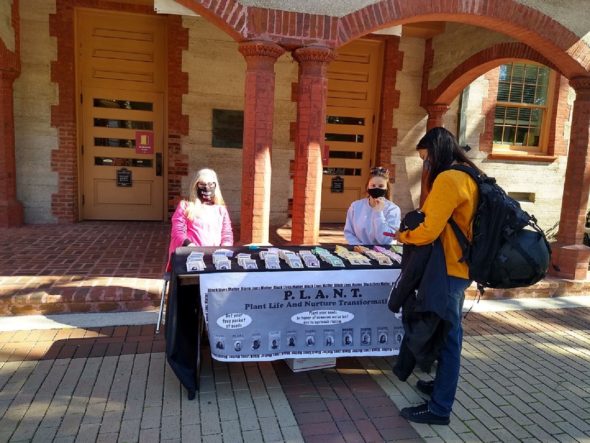
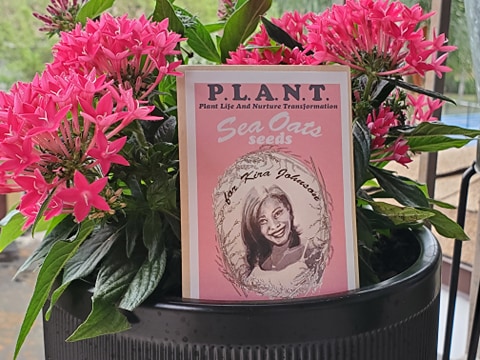
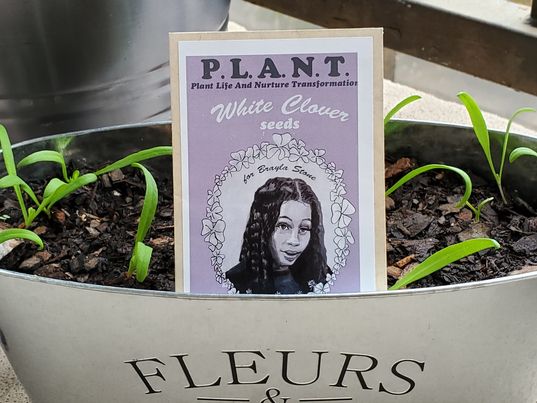
P.L.A.N.T., which stands for Plant Life And Nurture Transformation, is a socially-engaged art project resulting from an independent study put together by Martin and Prof. Leslie Robison. The independent study was the last class needed to finish off Martin’s major in the new Social Entrepreneurship program, making her the first student at Flagler to graduate with it.
Evolving from an unfinished project from the prior semester, Martin and Robison began working on what would become the P.L.A.N.T. project with the aim of educating people on the nature of racial injustice, as well as bringing them into what Robison describes as, “experiential art.”
“We are handing something physical to someone and asking them to do something with it,” Robison said.
This intersection of art, social justice, and physical action is where P.L.A.N.T. finds itself. Some people may have just come up to the stand to pick up some seeds for their garden but, as Martin said, “you have to pull out the pamphlet first.”
No matter what, whoever picked up a packet of seeds, no matter what they did with it afterward, had to engage with it in some way shape or form. One of the packets contains salicornia seeds which, according to the paper inside, “can detoxify soils and pull more CO2 out of the air than any method constructed by humans.”
The woman depicted on the packet is Jasmine McBride, who died of Legionnaires’ disease, a lethal type of pneumonia, as a result of the water crisis in Flint, MI.
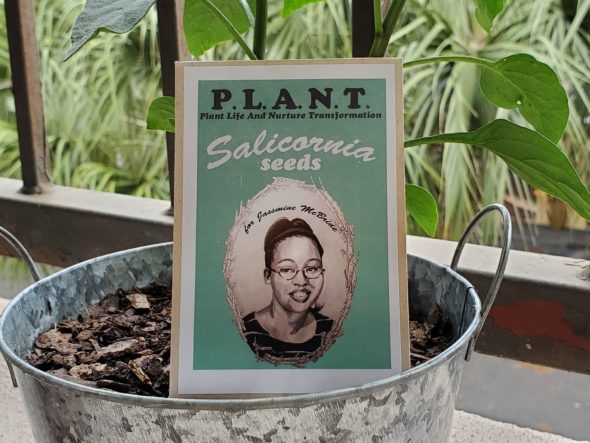
For those that were just looking for some seeds, they had to look at the design on the packet and, if even for just a moment, read her name and look at her face. They had to open it and remove the pamphlet describing the unjust nature of her death and the seed which represents her. They had to make a decision about whether to read it or put it aside. No matter what, they had to do something.
The seeds of a social movement are carried through the vehicle of art, and something as small as a packet of seeds planted in a home garden in remembrance can be the beginning of something because, as Victoria Martin said, “You can’t have social change without art.”

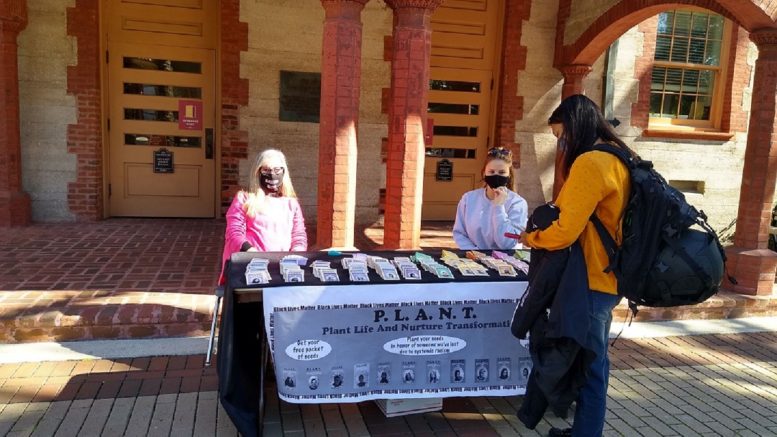

Be the first to comment on "P.L.A.N.T.-ing Change at Diversity and Inclusion Week"